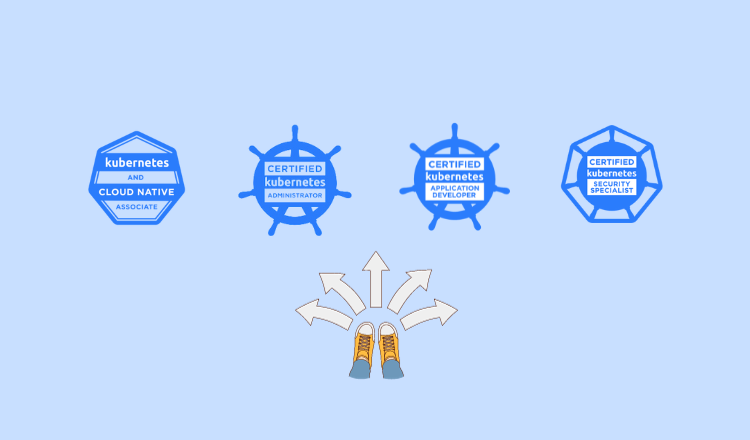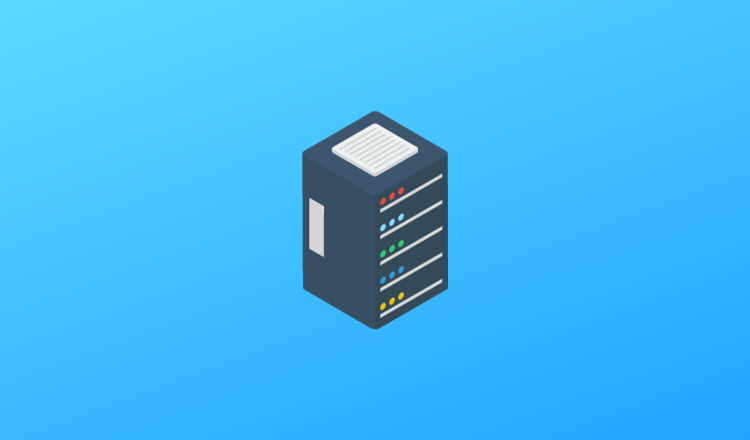Kubernetes Certification: Everything You Need to Know in 2023
Learn about all Kubernetes certifications, including the different exams available, pricing, and tips for saving money.
As someone who is certified in Kubernetes, I’ve compiled all the essential information you need to know about Kubernetes certification.
Types of Kubernetes Certification
There are a total of 4 kubernetes certifications. I have added a brief description of each with all the exam details you need to know.
Certified Kubernetes Administrator (CKA)
Certified Kubernetes Administrator (CKA) is an industry-recognized credential that demonstrates your ability to manage and maintain Kubernetes clusters.
It is a popular and sought-after certification among DevOps Engineers.
The CKA exam is a hands-on exam that tests your ability to perform tasks such as:
- Installing and configuring Kubernetes clusters
- Managing Kubernetes objects, such as Deployments, Pods, and Services
- Scaling and troubleshooting Kubernetes applications
- Securing Kubernetes clusters
To pass the CKA exam, you must have a good understanding of Kubernetes concepts and be able to use the Kubernetes command-line interface (kubectl) effectively.
The following table contains the information about the CKA exam.
| Information | Details |
|---|---|
| Pricing | USD 395 |
| Latest Kubernetes version | 1.28.0 |
| Exam type | Performance-based, hands-on |
| Exam time | 2 hours |
| Exam validity | 3 years |
| Prerequisites | 1-2 years of experience managing Kubernetes in production |
| Exam topics | Kubernetes fundamentals, Deployments, Pods, Services, Networking, Storage, PersistentVolumeClaims, PersistentVolumes, StatefulSets, DaemonSets, Jobs, CronJobs, HorizontalPodAutoscalers, Ingress, TLS, Secrets, ConfigMaps, ResourceQuotas, LimitRanges, Namespaces, RBAC, Troubleshooting |
Certified Kubernetes Application Developer (CKAD)
Certified Kubernetes Application Developer (CKAD) is a certification that demonstrates your ability to apply Kubernetes concepts to build, deploy, and manage containerized applications.
The CKAD exam is also a hands-on exam that tests your ability to perform tasks such as:
- Deploying and configuring applications
- Managing application lifecycle
- Troubleshooting and debugging applications
- Securing applications
- Monitoring and logging applications
| Information | CKAD |
|---|---|
| Pricing | USD 395 |
| Latest Kubernetes version | 1.28.0 |
| Exam type | Performance-based, hands-on |
| Exam time | 2 hours |
| Exam validity | 3 years |
| Prerequisites | 6 months of experience deploying and managing containerized applications in Kubernetes |
| Exam topics | Kubernetes basics, Docker, Deployments, Pods, Services, Networking, Storage, PersistentVolumeClaims, PersistentVolumes, ConfigMaps, Secrets, ResourceQuotas, LimitRanges, Namespaces, RBAC, Troubleshooting |
Certified Kubernetes Security Specialist (CKS)
CKS is a Kubernetes security-focused certification. To take the CKS exam, you must already be a Certified Kubernetes Administrator (CKA). Your CKA certification also needs to be active (not expired) when you schedule the CKS exam.
The CKS is a performance-based exam that tests your skills in Kubernetes and cloud security. It puts you in a real-world environment to see how well you can secure container-based applications and Kubernetes platforms.
CKS exam covers clusters security and other cncf open soruce tools like Trivy and Falco for securing the cluster.
| Information | Certified Kubernetes Security Specialist (CKS) |
|---|---|
| Pricing | USD 395 |
| Latest Kubernetes version | 1.28.0 |
| Exam type | Performance-based, hands-on |
| Exam time | 2 hours |
| Exam validity | 3 years |
| Prerequisites | Valid CKA certification |
| key Exam Topics | Cluster Setup, Cluster Hardening, System Hardening, Minimize Microservice Vulnerabilities, Supply Chain Security, Monitoring, Logging and Runtime Security |
Kubernetes and Cloud Native Associate (KCNA)
The Kubernetes Cloud Native Associate (KCNA) exam is a test that measures your basic understanding of Kubernetes and other cloud-native technologies. It’s a stepping stone for those who are interested in diving deeper into the world of cloud computing.
Once you pass the KCNA exam, you’ll have proven that you understand the basics of Kubernetes and the wider cloud-native ecosystem.
This certification can help you move on to more advanced certifications like CKA (Certified Kubernetes Administrator), CKAD (Certified Kubernetes Application Developer), and CKS (Certified Kubernetes Security Specialist).
| Information | Kubernetes and Cloud Native Associate (KCNA) |
|---|---|
| Cost | $250 |
| Exam Duration | 2 hours |
| Number of Questions | 60 |
| Prerequisites | None |
| Topics Covered | 1. Kubernetes Basics 2. Cloud-Native Landscape 3. Application Deployment 4. Cloud-Native Security |
How Much Does Kubernetes Certification Cost
I have organized all the certification costs in the following table. All the certification comes with preparation courses. I have added the price of the associated course bundle as well.
| Certification | Certification Cost | Course Bundle Cost |
|---|---|---|
| Certified Kubernetes Administrator (CKA) | $395 | $595 |
| Certified Kubernetes Application Developer (CKAD) | $395 | $595 |
| Certified Kubernetes Security Specialist (CKS) | $395 | $595 |
| Kubernetes Cloud Native Associate (KCNA) | $250 | $299 |
| CKA + CKS Bundle | $725 | N/A |
Choosing a Kubernetes Certification
Choosing a Kubernetes certification depends upon individual preferences, career paths, and skill sets.
We have published a detailed guide on how to choose a certification.
Please read Choosing the Right Kubernetes Certification
If you are preparing for Kubernetes certification, don’t forget to get the voucher code from the Linux Foundation Coupon Page. You could save up to 50% on certification registrations.
Conclusion
70% of IT leaders worldwide use Kubernetes in their organizations. (Source: Red Hat State of Enterprise Open Source Report)
As per talent.com data, the average salary of a Kubernetes engineer is $146,531.

I hope you found this guide helpful. If you have any questions, feel free to leave a comment below, and I’ll do my best to clear up any confusion.
In the upcoming blogs, I will talk about how to prepare for these certifications.



Responses